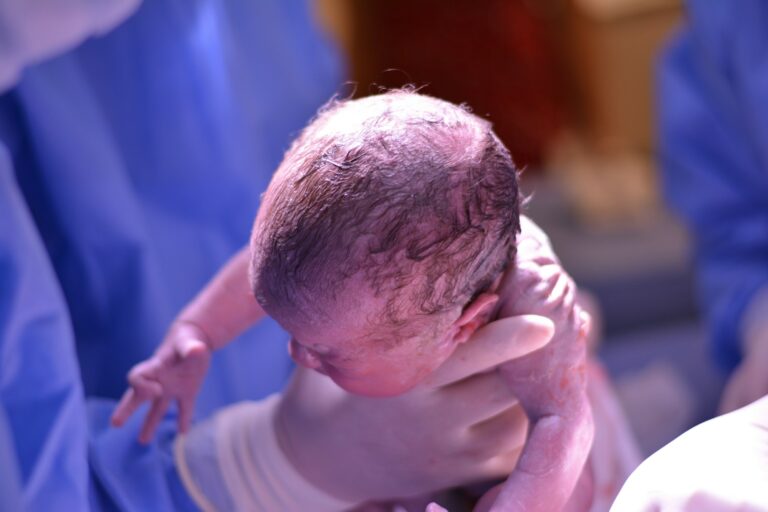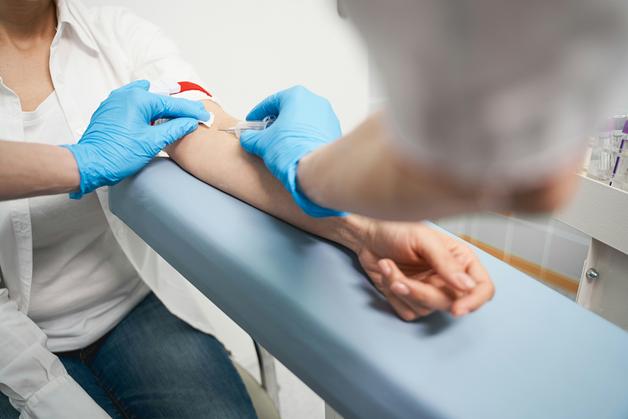The journey to welcoming a new life is peppered with many surprises, and sometimes, the skin’s reaction becomes an unexpected companion. As the belly grows—sometimes almost overnight!—many parents notice a relentless urge to scratch, perhaps wondering if this is just a passing phase or something more demanding attention. The sensation of an itchy belly during pregnancy might arrive as a mild annoyance or transform, without warning, into a nightly struggle to find relief and rest. Doubts arise: Is this normal skin stretching or a signal of something deeper? How do you soothe this persistent dryness, and when should you be on the lookout for warning signs? Let’s unravel the science, bust some myths, and provide practical tools, so every parent feels empowered and prepared to tackle even the most persistent itch.
Why Itchy Belly During Pregnancy Happens So Often
Almost like a rite of passage, itchy belly during pregnancy is experienced by a significant number of expectant mothers—statistics suggest nearly 40%. As the abdomen expands, the elastic fibers beneath the skin are put to the test. The result? Sensations of tightness, dryness, and that unmistakable itch, especially near the navel. The underlying process involves skin stretching, where the fibers, especially collagen, undergo micro-tears. You might spot red or purplish lines—these stretch marks (striae gravidarum)—making their debut, often paired with increased itching.
Hormonal influences ride shotgun throughout pregnancy. Increasing levels of progesterone and estrogen can slow down sebum (natural skin oils) production, leaving the skin more vulnerable to dryness and irritation. If there’s a personal or family history of conditions like eczema or psoriasis—or your skin is naturally on the drier, less elastic side—the itchiness can intensify further. Genetics, climate (think heat waves!), and even the choice of clothing—synthetic fibers versus breezy cotton—play a role in how intense the itching feels. Ever noticed the urge to scratch becomes stronger at night? Blame the heightened microcirculation and the mind’s sharper focus on bodily sensations after the day’s noise dies down.
The Multiple Layers of Causes Behind an Itchy Belly in Pregnancy
1. Skin Stretching and Collagen Tension
As weeks pass and your bump grows, the skin must keep up, stretching over your abdomen and sometimes your breasts, hips, and thighs. If the collagen matrix (the support web under the skin) reaches its limit, those tiny fissures trigger the brain’s itch response. When you see new stretch marks, itchiness often tags along.
2. The Hidden Work of Hormones
With every trimester, hormone levels swing. These hormonal changes weaken the skin’s barrier, leading to dryness and—yes—more itching. Not only the belly but often breasts and flanks join the itchy parade.
3. Everyday Habits and Environmental Triggers
Hot, humid weather accelerates sweating, and when coupled with tight clothing or harsh laundry detergents, skin irritation can climb quickly. Synthetic fabrics are notorious for trapping heat and moisture, escalating the itch. Even routine tasks—like showering with hot water—can drain skin of moisture, setting up conditions for persistent pruritus, the medical term for itching.
4. Medical Conditions That Demand Attention
Here’s where vigilance makes all the difference. Sometimes, itchy belly during pregnancy can signal more than just ordinary skin stretching:
- Pruritic urticarial papules and plaques of pregnancy (PUPPP): These show up as red, swollen patches—primarily on the belly, then sometimes spreading. Annoying? Absolutely. Dangerous for baby? No.
- Intrahepatic cholestasis of pregnancy (ICP): A liver disorder marked by severe itching (often palms and soles), not always with a visible rash. Other warning signs: dark urine, pale stools, or jaundice (yellowing skin/eyes). Immediate medical attention is needed because elevated bile acids can affect baby’s health.
- Polymorphic eruption of pregnancy (AEP) and eczema flares: If you’ve battled allergies, asthma, or eczema, pregnancy hormones may stir up a skin storm. Rashes, hives, and inflamed patches can all demand extra care.
- Fungal or yeast infections: Increased moisture in skin folds, especially as the belly droops, can trigger redness and a persistent, sometimes stinging itch.
What Changes, What to Watch for, and Who’s More at Risk
Itchiness often begins gradually, zeroing in on the belly, but sometimes it decides to roam—breasts, flanks, even thighs get involved. Nighttime seems to intensify these sensations, often because focus sharpens when all else is still. Scratching brings quick relief but opens the door to raw patches or even infection, making things worse.
Warning bells should ring if:
- Itching becomes intense and widespread
- Rashes, marked redness, or swelling appear
- Itchiness creeps toward hands, feet, or elsewhere on the body
- Fever, fatigue, jaundice, dark urine, or pale stools develop
- Signs of infection—pain, warmth, pus—emerge
Risk factors are not set in stone, but they definitely play their role: carrying twins or more, history of skin or liver disease, higher maternal age, and pre-existing allergies should make you more vigilant.
When an Itchy Belly During Pregnancy Signals Something Serious
For most parents, the itch is a temporary visitor. But sometimes it’s a red flag:
- ICP: Nighttime itching, especially palms and soles, dark urine, or yellowish skin should never be dismissed. Quick blood tests (measuring bile acids, liver enzymes) can clarify the cause and safeguard baby’s wellbeing.
- PUPPP: The rash is uncomfortable and distracting, typically erupting near the end of pregnancy. No impact on the baby, but still worth a check-up for relief.
- Other systemic issues: Allergic reactions, eczema, even kidney or rare autoimmune diseases can start with skin symptoms. Be alert, especially if new symptoms or a sudden spike in severity appears.
Consult if you notice:
- Persistent, severe, or sleep-disrupting itching
- Additional symptoms (jaundice, fatigue, abnormal urine/stools, nausea, swelling, fever, unexpectedly spreading rash)
- No response to home remedies or sudden worsening
Practical Solutions: Self-Care and Soothing Your Itchy Belly During Pregnancy
Daily rituals and a dash of caution can transform discomfort into manageability:
- Opt for fragrance-free, gentle soaps or pH-balanced cleansers to wash away sweat without stripping the skin.
- Choose short, lukewarm showers; avoid hot water to prevent further dryness.
- Twice-daily moisturising with rich creams or natural oils—think sweet almond, shea butter, coconut, or calendula—can restore the barrier and give lasting relief.
- Calm hot spots with cool compresses or aloe vera gels; oatmeal baths work wonders too.
- Dress in loose, breathable clothing—cotton, linen—and swap out synthetic layers that may trap heat.
- Stick with hypoallergenic, unscented detergents to keep clothing irritation-free.
- Air out your rooms, use fans, avoid overheating—heat plus humidity equals amplified itching.
- Hydration matters: drink plenty of water and add vitamin-rich snacks to the menu.
- Try relaxation techniques—deep breathing, gentle yoga, or stretching—to lower stress, which can exacerbate itch perception.
- Avoid scratching if possible, since it can lead to breaks in the skin and increase infection risk; consider gentle massage instead.
- Steer clear of abrasive scrubs; your skin needs gentle care, not exfoliation-induced chaos.
When Medical Treatment Becomes Necessary
Certain cases demand more than at-home tactics. If home strategies fail or severe warning signs set in, doctors may advise:
- Topical corticosteroids: Anti-inflammatory creams, prescribed when rashes are stubborn.
- Pregnancy-safe oral antihistamines: For intense itching or when sleep vanishes due to restless skin.
- Ursodeoxycholic acid: This is reserved for ICP; it lowers bile acids and protects the baby.
- Vitamin K supplements: Occasionally required, as bile flow issues can hamper vitamin absorption.
- Frequent monitoring: Some skin or liver conditions call for regular visits and, occasionally, induced labour close to week 37, all aimed at maximizing the baby’s safety.
Always consult a professional before starting any prescription treatment, may it be ointments, tablets, or supplements.
Prevention: Starting Early for Happy Skin
A little attention early on can keep discomfort at bay:
- Start daily use of a pregnancy-safe, nourishing moisturizer before the skin stretches dramatically.
- Pick out loose, natural-fabric clothes and change them if sweaty or damp.
- Air your rooms, improve ventilation, keep the bedroom cool—skin prefers a fresh environment.
- Scan your daily routine for hidden irritants (fragrances, strong gels, scratchy tags)—eliminate or swap for gentler alternatives.
Here, consistency is your ally—skin protection is a daily habit, not a one-time fix.
Maternal and Fetal Safety: Dissecting the Risks
For most, the story of itchy belly during pregnancy ends with a return to comfort—stretch marks fade, sleep improves, and no major consequences persist. Rashes like PUPPP and mild eczema, while bothersome, very rarely bother the baby. But rare liver-related itching (like ICP) must be taken seriously, given potential complications such as preterm birth or fetal distress. Prompt management, regular follow-ups, and proactive planning—from blood tests to birth timing—can tip the outcome firmly in everyone’s favour.
Key Takeaways
- Itchy belly during pregnancy is frequent and usually stems from skin stretching, dryness, and hormonal flux.
- Recognise the usual suspects—hormone-driven dryness, abdominal expansion, medical conditions like PUPPP or (rarely) cholestasis—and act promptly if something seems amiss.
- Prevention focuses on hydration, moisturising, gentle products, breathable clothing, and stress reduction.
- Any severe, persistent, or spreading itch—especially with warning symptoms like jaundice, fatigue, dark urine, or fever—warrants professional input.
- Distinguish between mild, manageable discomfort and situations that require swift medical assessment.
- For more tailored support, access application Heloa for personalized advice, health tracking, and free questionnaires designed for children.
Questions Parents Ask
Can an itchy belly during pregnancy tell you if it’s a boy or girl?
Curiosity and old tales go hand in hand—some say the way your skin reacts, including the pattern or intensity of itching, might predict your baby’s gender. The reality, backed by current medical knowledge? No connection has been scientifically proven between itchy belly during pregnancy and whether you’re expecting a boy or a girl. These sensations arise due to hormonal changes and natural skin stretching, nothing to do with the baby’s gender.
Are creams and oils really safe for an itchy pregnant belly?
The concern is understandable—pregnancy makes everyone extra careful about what touches their skin. Rest assured, most fragrance-free, hypoallergenic creams and natural oils (like coconut, shea butter, or sweet almond oil) are well-suited for use and help replenish lost moisture. If you notice a reaction—redness, stinging, or more itching—it might be time to switch or check with your healthcare provider, especially if sensitivities are already part of your skin history.
Does scratching an itchy belly cause stretch marks or harm the baby?
The urge to scratch is admittedly hard to resist when itchy belly during pregnancy strikes. While the act of scratching doesn’t directly create stretch marks—genetics and the rate of skin stretching are the main culprits—it can make skin vulnerable. Vigorous, repeated scratching invites tiny breaks, irritation, or even infection. Gentle massages, cool compresses, or applying a rich moisturiser can control the urge without compromising skin’s integrity.
Let the journey towards comfort, knowledge, and joyful anticipation guide your steps—and whenever questions linger, trusted resources and caring professionals are ready to help.
Further reading:









